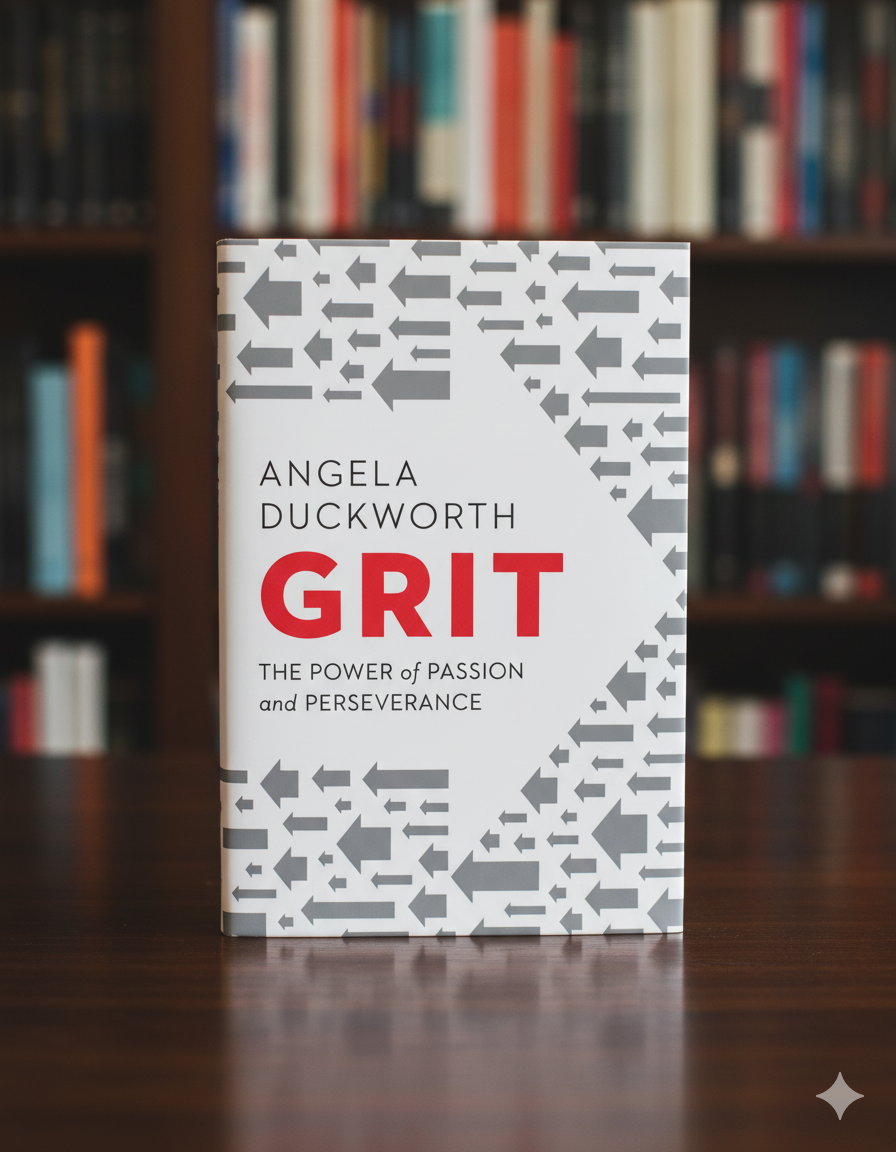We often look at highly successful people – brilliant artists, accomplished athletes, visionary entrepreneurs – and think, "They must just be naturally talented." While talent certainly plays a role, Angela Duckworth's groundbreaking book, Grit: The Power of Passion and Perseverance, challenges this assumption and reveals a much more powerful predictor of success: grit.
Duckworth, a psychologist and MacArthur "genius" grant recipient, defines grit as "passion and sustained persistence toward long-term goals." It's the ability to stick with something you care about, even when it's hard, even when you face setbacks, and even when others might give up.
More Than Just Hard Work
Grit isn't just about working hard; it's about working hard on the right things and for a long time. It combines two crucial elements:
- Passion: Not a fleeting interest, but a deep, enduring commitment to a goal that gives your life meaning. It's the "why" that fuels your journey.
- Perseverance: The sheer stick-to-it-ness. The willingness to practice, to overcome obstacles, to learn from failure, and to keep going even when progress is slow or invisible.
As Duckworth puts it, "Enthusiasm is common. Endurance is rare."
The Myth of Natural Talent
One of Duckworth's most compelling arguments is that while talent is important, it's often overrated. She shows through extensive research (studying West Point cadets, National Spelling Bee champions, NFL draftees, and more) that grit often trumps raw talent in predicting who will ultimately succeed.
Many exceptionally talented individuals never reach their full potential because they lack the grit to push through the inevitable frustrations and plateaus. Conversely, individuals who may not be the most naturally gifted often achieve extraordinary things through sheer, dogged determination.
"Our potential is one thing. What we do with it is another," she writes.
Can You Develop Grit? (Spoiler: Yes!)
This is the most empowering part of Grit: it's not an innate quality you either have or you don't. Grit can be cultivated and strengthened. Duckworth identifies four key psychological assets of gritty individuals:
- Interest: You have to genuinely enjoy what you're doing. This passion is the fuel.
- Practice: Deliberate practice, aimed at improving specific weaknesses, is crucial. It's not just repeating tasks, but consciously striving to get better.
- Purpose: Understanding how your work contributes to something larger than yourself can provide a powerful source of motivation to persist.
- Hope: The belief that your efforts can improve your future, even in the face of adversity. Optimism and a growth mindset are vital here.
A Call to Persistent Action
Grit is a powerful reminder that success is rarely an overnight phenomenon or solely the result of natural gifts. It's built day by day, through sustained effort, unwavering passion, and the refusal to give up.
If you have big dreams but sometimes feel discouraged, or if you're looking for the secret ingredient to long-term achievement, Grit will provide a profound framework. It encourages us to find our deepest passions, commit to relentless improvement, and cultivate the unwavering perseverance that truly makes a difference. Stop waiting for inspiration; start cultivating your grit.
